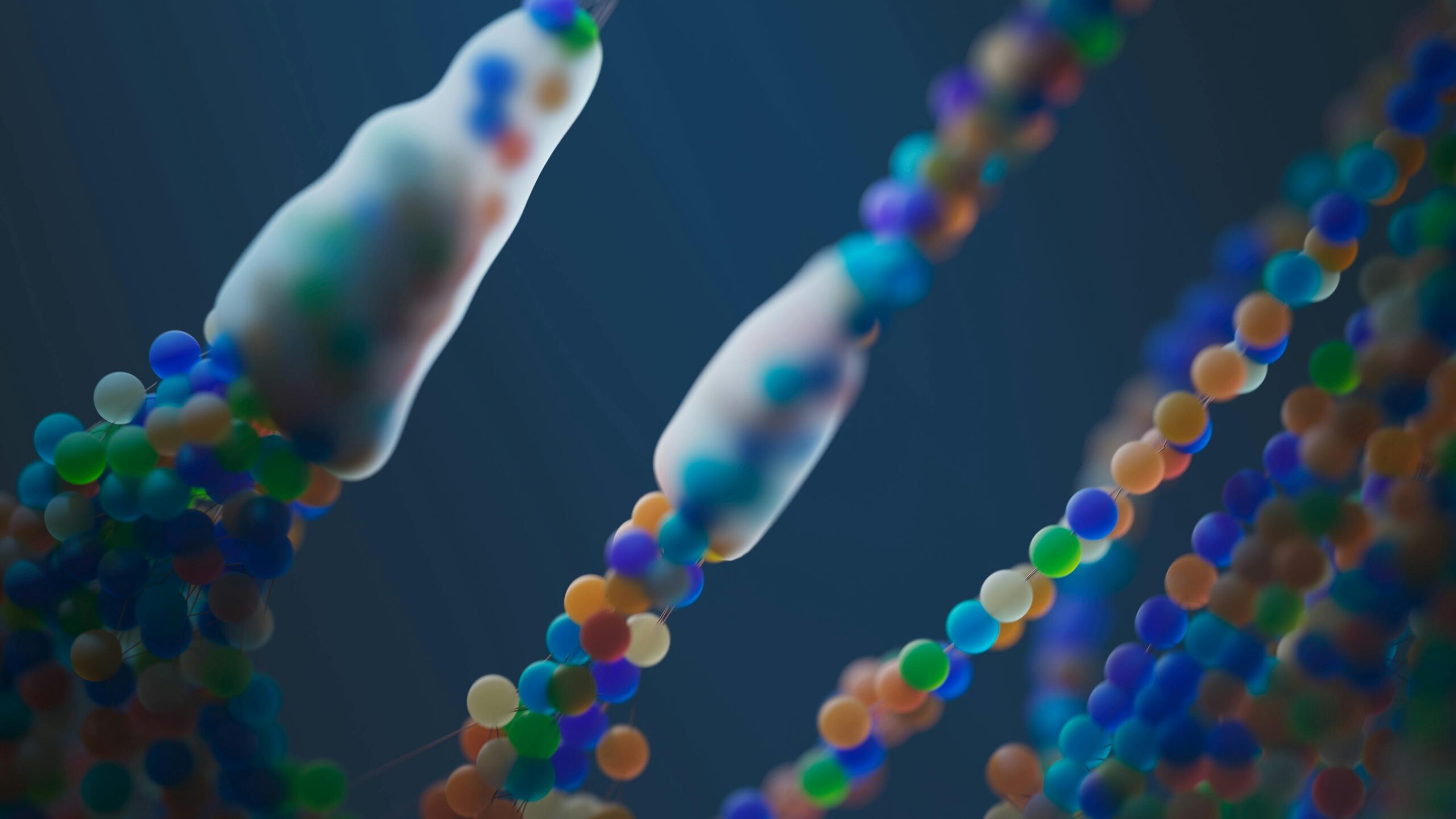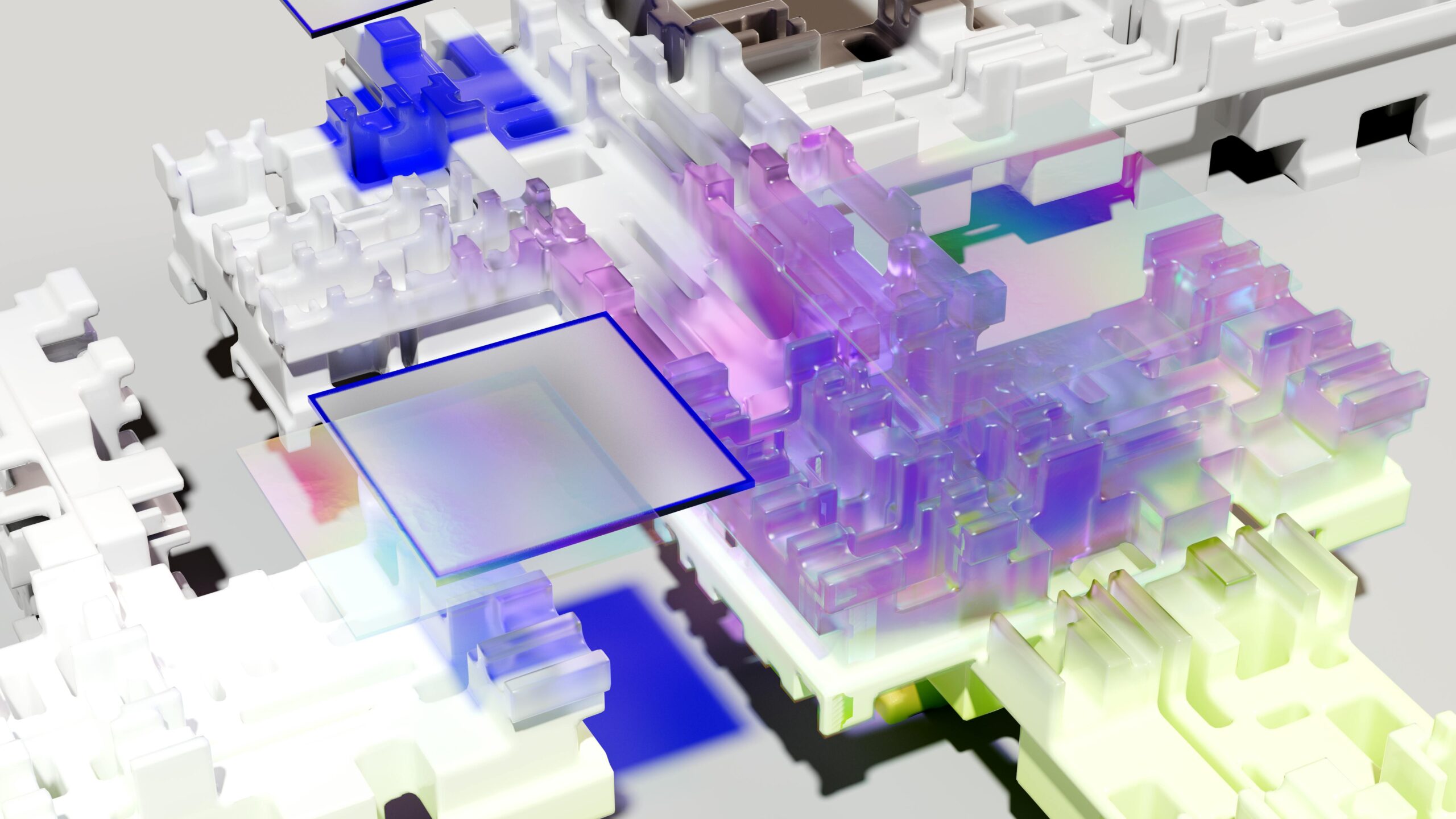The blueprint of life isn’t as fixed as we once believed. Beyond the static DNA sequence lies a dynamic layer of regulation that determines how our genes are expressed, shaping health outcomes and disease susceptibility in profound ways.
Epigenomics and gene expression profiling represent revolutionary frontiers in biological research, offering unprecedented insights into how our bodies respond to environmental factors, aging, and therapeutic interventions. These cutting-edge technologies are transforming our understanding of human biology and opening new pathways for precision medicine.
🧬 The Epigenomic Revolution: Beyond the Genetic Code
Epigenomics studies the complete set of epigenetic modifications across the entire genome. Unlike genetic mutations that alter the DNA sequence itself, epigenetic changes modify how genes are read and expressed without changing the underlying code. Think of DNA as the hardware and epigenetics as the software that determines which programs run and when.
These modifications include DNA methylation, histone modifications, and chromatin remodeling—processes that can activate or silence genes in response to various signals. What makes epigenetics particularly fascinating is its reversibility and sensitivity to environmental influences, from diet and stress to pollutants and lifestyle choices.
The Human Epigenome Project and similar international initiatives have mapped these modifications across different cell types, developmental stages, and disease states. This comprehensive catalog provides researchers with invaluable resources for understanding normal development and identifying aberrant patterns associated with diseases.
Key Epigenetic Mechanisms Shaping Gene Activity
DNA methylation involves the addition of methyl groups to cytosine bases, typically leading to gene silencing. This process plays crucial roles in embryonic development, genomic imprinting, and X-chromosome inactivation in females. Abnormal methylation patterns are hallmarks of numerous cancers and neurological disorders.
Histone modifications alter the proteins around which DNA wraps, affecting how tightly or loosely the genetic material is packaged. Acetylation generally opens chromatin and activates genes, while methylation can either activate or repress depending on the specific histone residue modified.
Non-coding RNAs, including microRNAs and long non-coding RNAs, represent another layer of epigenetic regulation. These molecules don’t code for proteins but instead regulate gene expression post-transcriptionally, fine-tuning cellular responses with remarkable precision.
📊 Gene Expression Profiling: Reading the Cellular Conversation
Gene expression profiling measures the activity levels of thousands of genes simultaneously, providing a snapshot of cellular function at any given moment. This technology has evolved dramatically from early microarray platforms to today’s powerful RNA sequencing methods.
RNA-seq technology sequences all RNA molecules in a sample, revealing not just which genes are active but how actively they’re being transcribed. This quantitative approach provides unprecedented resolution, detecting even rare transcripts and novel splice variants that previous methods might miss.
Single-cell RNA sequencing has revolutionized the field by enabling researchers to profile individual cells rather than tissue averages. This granular view reveals cellular heterogeneity within tumors, identifies rare cell populations in immune responses, and tracks developmental trajectories with extraordinary detail.
Technologies Powering Expression Analysis
Next-generation sequencing platforms have become faster, cheaper, and more accurate. Illumina, Oxford Nanopore, and PacBio technologies each offer unique advantages—from short, highly accurate reads to long reads that span entire transcripts, enabling comprehensive characterization of complex genomic regions.
Spatial transcriptomics adds another dimension by preserving information about where in the tissue each RNA molecule was located. This spatial context is crucial for understanding how cells interact within their microenvironment, particularly relevant in studying tumor ecosystems and developmental biology.
Multi-omics integration combines gene expression data with proteomics, metabolomics, and epigenomics to build comprehensive models of cellular function. These integrated approaches reveal relationships between different molecular layers that wouldn’t be apparent from examining each separately.
💡 Driving Innovations in Disease Understanding
Cancer research has been transformed by epigenomic and expression profiling technologies. Tumor classification now incorporates molecular subtypes based on expression patterns, enabling more precise prognosis and treatment selection. The discovery that many cancers harbor epigenetic rather than genetic driver mutations has opened entirely new therapeutic avenues.
Liquid biopsies analyze circulating tumor DNA and RNA, detecting cancer-specific epigenetic marks and expression signatures in blood samples. This non-invasive approach enables early detection, treatment monitoring, and identification of resistance mechanisms without repeated tissue biopsies.
Neurological disorders including Alzheimer’s disease, schizophrenia, and autism spectrum disorders show distinctive epigenetic signatures. Research has revealed how environmental factors during critical developmental windows can establish lasting epigenetic marks that influence brain function throughout life.
Cardiovascular Disease and Metabolic Disorders
Atherosclerosis development involves complex epigenetic changes in vascular cells responding to inflammatory signals and mechanical stress. Expression profiling has identified gene networks that distinguish stable from vulnerable plaques, potentially identifying patients at highest risk for heart attacks.
Type 2 diabetes research has uncovered how metabolic memory—persistent epigenetic changes resulting from periods of poor glucose control—contributes to long-term complications. Understanding these mechanisms suggests that early intensive intervention might establish beneficial epigenetic patterns that protect against future complications.
Obesity research reveals how maternal nutrition and metabolic status can program offspring metabolism through epigenetic modifications, contributing to intergenerational cycles of metabolic disease. This developmental programming offers both challenges and opportunities for early intervention strategies.
🔬 Precision Medicine: Tailoring Treatment to Molecular Profiles
Pharmacogenomics uses expression profiling to predict drug responses and side effects. Certain breast cancers with specific expression signatures respond dramatically to targeted therapies, while others require different approaches. This molecular matching improves outcomes while avoiding unnecessary treatments and their associated toxicities.
Immunotherapy success depends heavily on the tumor immune microenvironment. Expression profiling can identify immune cell infiltration, checkpoint molecule expression, and inflammatory signatures that predict which patients will benefit from immune checkpoint inhibitors and which might need combination approaches.
Epigenetic drugs including DNA methyltransferase inhibitors and histone deacetylase inhibitors have gained regulatory approval for treating certain cancers and are being tested in numerous other conditions. The reversibility of epigenetic modifications makes them particularly attractive therapeutic targets.
Biomarker Discovery Accelerating Clinical Translation
Expression signatures serve as biomarkers for diagnosis, prognosis, and treatment response prediction. Multi-gene panels like Oncotype DX and MammaPrint guide chemotherapy decisions in breast cancer by predicting recurrence risk based on expression patterns, sparing low-risk patients from unnecessary treatment.
Minimal residual disease monitoring uses ultra-sensitive detection of cancer-specific expression or methylation patterns to identify persistent disease after treatment. This approach enables early intervention before clinical relapse, potentially improving cure rates in leukemia and other cancers.
Prenatal screening increasingly incorporates cell-free fetal DNA analysis from maternal blood, detecting chromosomal abnormalities and even single-gene disorders non-invasively. Epigenetic marks distinguish fetal from maternal DNA, enabling sophisticated analyses from simple blood draws.
🌍 Environmental Epigenetics: How Experience Shapes Biology
Nutritional epigenetics examines how diet influences epigenetic marks and gene expression. Folate, vitamin B12, and other methyl donors directly impact DNA methylation patterns. Bioactive compounds in foods like sulforaphane in broccoli and resveratrol in grapes modulate histone modifications, potentially explaining protective effects of certain dietary patterns.
Toxicological research uses epigenomic approaches to understand how environmental pollutants cause disease. Endocrine disruptors like bisphenol A establish lasting epigenetic changes even after brief exposures during development, affecting reproductive health and metabolic function years later.
Stress and trauma leave epigenetic signatures that can persist for years and potentially transmit across generations. Studies of Holocaust survivors and their descendants, famine cohorts, and trauma-exposed populations reveal how experiences become biologically embedded through epigenetic mechanisms.
⚡ Technological Advances Accelerating Discovery
CRISPR-based epigenome editing enables precise modification of epigenetic marks at specific genomic locations without changing the DNA sequence. These tools allow researchers to test causal relationships between epigenetic modifications and cellular functions, moving beyond correlative observations to mechanistic understanding.
Artificial intelligence and machine learning algorithms analyze complex multi-omics datasets, identifying patterns and relationships too subtle for traditional statistical approaches. Deep learning models predict gene expression from DNA sequence and epigenetic features, or classify disease subtypes from expression profiles with superhuman accuracy.
Portable sequencing devices are democratizing access to genomic technologies. Oxford Nanopore’s MinION sequencer fits in a hand and connects to laptops, enabling field-based pathogen detection, point-of-care diagnostics, and real-time analysis in resource-limited settings.
Cloud Computing and Data Sharing Initiatives
The enormous datasets generated by modern sequencing require sophisticated computational infrastructure. Cloud-based platforms enable researchers worldwide to access and analyze data without massive local computing resources, accelerating collaborative research and reducing redundancy.
Data sharing initiatives like the Genomic Data Commons and the International Human Epigenome Consortium make carefully curated datasets publicly available. These resources amplify research impact, enable validation studies, and support meta-analyses that reveal patterns across diverse populations and conditions.
🏥 Clinical Implementation: From Bench to Bedside
Regulatory frameworks are evolving to accommodate genomic medicine. The FDA has approved laboratory-developed tests based on expression profiling, established guidelines for next-generation sequencing test validation, and created expedited pathways for genomic-based diagnostics.
Clinical laboratories are implementing standardized protocols for sample processing, data analysis, and result interpretation. Proficiency testing programs and certification standards ensure quality and reproducibility, critical requirements for clinical decision-making based on molecular profiling.
Electronic health record integration enables genomic data to inform clinical decisions at the point of care. Clinical decision support systems alert physicians to drug-gene interactions, suggest targeted therapies based on tumor profiles, and flag patients who might benefit from genetic counseling.
🚀 Future Directions: What Lies Ahead
Organoid technology combined with expression profiling enables personalized drug testing using patient-derived mini-organs grown in laboratory dishes. These avatars reproduce patient-specific biology more faithfully than traditional cell lines, potentially revolutionizing drug development and treatment selection.
Epigenetic reprogramming therapies aim to rejuvenate aged tissues by resetting cellular epigenetic clocks. Early experiments in animals have reversed age-related decline in vision, memory, and tissue regeneration, suggesting tantalizing possibilities for extending human healthspan.
Population-scale biobanks linking genomic data with longitudinal health records will enable discovery of risk factors and protective factors operating across entire lifespans. The UK Biobank, All of Us Research Program, and similar initiatives are recruiting hundreds of thousands of participants to power these analyses.
Ethical Considerations and Societal Impact
Privacy concerns around genomic data require robust protections. Unlike other health information, genetic data identifies blood relatives and reveals ancestry, necessitating special safeguards. Blockchain technologies and federated learning approaches that analyze data without centralizing it may address some privacy challenges.
Health equity issues must be addressed proactively. Most genomic research has focused on populations of European ancestry, limiting applicability of findings to diverse populations. Inclusive research practices and equitable access to genomic medicine are essential to prevent exacerbating existing health disparities.
Direct-to-consumer genetic testing raises questions about interpretation, counseling, and psychological impact. While these services increase genetic literacy and research participation, they also risk misinterpretation and unnecessary anxiety without appropriate context and genetic counseling support.

🎯 Transforming Healthcare Through Molecular Insights
The convergence of epigenomics and gene expression profiling is fundamentally transforming our approach to health and disease. These technologies have moved beyond research tools to become integral components of clinical care, guiding treatment decisions and enabling early detection of diseases when they’re most treatable.
The journey from discovering the DNA double helix to mapping the human genome took decades. The current revolution in understanding how that genome is regulated and expressed is unfolding even more rapidly, powered by exponential improvements in technology, computation, and collaborative science.
As costs continue declining and technologies become more accessible, molecular profiling will likely become routine in healthcare, much as blood chemistry panels are today. The future of medicine is personalized, predictive, and preventive—informed by deep molecular understanding of each individual’s unique biological landscape.
The secrets of life encoded in our epigenomes and expressed through our genes are gradually being unlocked. Each discovery reveals new therapeutic opportunities, refines our understanding of disease mechanisms, and brings us closer to realizing the promise of truly precision medicine tailored to individual molecular profiles and life experiences. 🧬✨
Toni Santos is a biomedical researcher and genomic engineer specializing in the study of CRISPR-based gene editing systems, precision genomic therapies, and the molecular architectures embedded in regenerative tissue design. Through an interdisciplinary and innovation-focused lens, Toni investigates how humanity has harnessed genetic code, cellular programming, and molecular assembly — across clinical applications, synthetic organisms, and engineered tissues. His work is grounded in a fascination with genomes not only as biological blueprints, but as editable substrates of therapeutic potential. From CRISPR therapeutic applications to synthetic cells and tissue scaffold engineering, Toni uncovers the molecular and design principles through which scientists reshape biology at the genomic and cellular level. With a background in genomic medicine and synthetic biology, Toni blends computational genomics with experimental bioengineering to reveal how gene editing can correct disease, reprogram function, and construct living tissue. As the creative mind behind Nuvtrox, Toni curates illustrated genomic pathways, synthetic biology prototypes, and engineering methodologies that advance the precision control of genes, cells, and regenerative materials. His work is a tribute to: The transformative potential of CRISPR Gene Editing Applications The clinical promise of Genomic Medicine and Precision Therapy The design innovations of Synthetic Biology Systems The regenerative architecture of Tissue Engineering and Cellular Scaffolds Whether you're a genomic clinician, synthetic biologist, or curious explorer of engineered biological systems, Toni invites you to explore the cutting edge of gene editing and tissue design — one base pair, one cell, one scaffold at a time.




